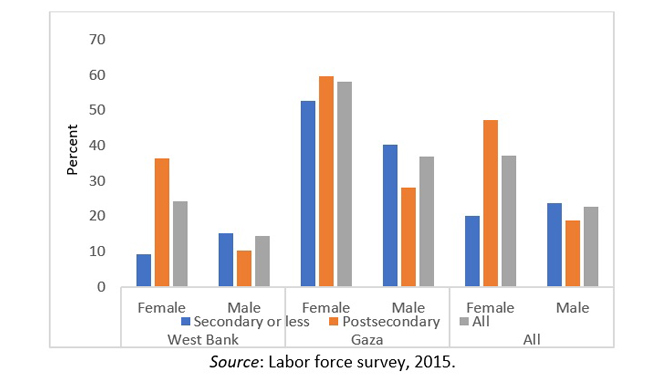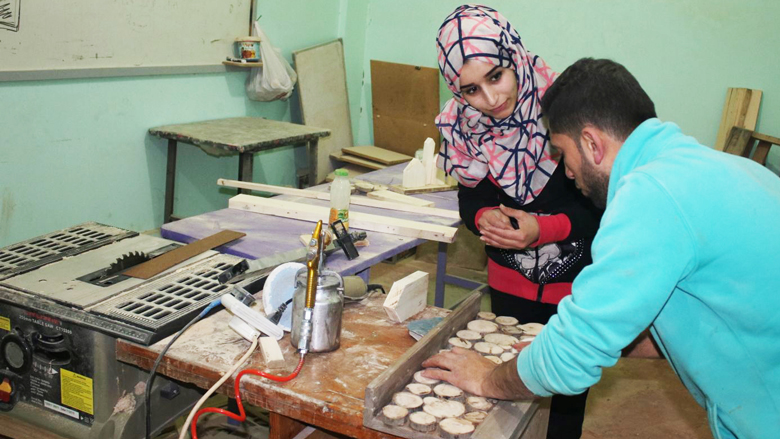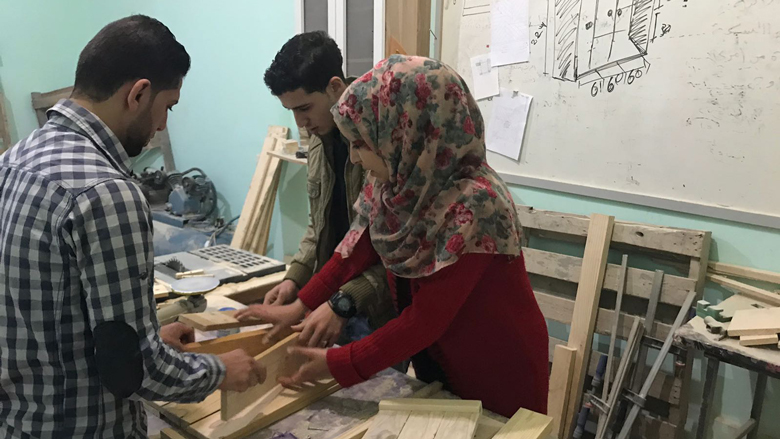The saying “one person’s trash is another person’s treasure” could not ring more true in the case of Aya Kishko, who at only 26 years old founded and is running her successful Basata Up business in Gaza. Aya launched an enterprise built on upcycling discarded wooden crates into high value furniture. On any given day, more than 200 trucks, each containing about 24 wooden crates of merchandise, enter Gaza. While the goods are distributed, the crates are usually discarded out onto the streets. Not only are they an eye sore but in the small, densely populated city they are also an environmental hazard.
Aya, a graduate of architectural engineering, is among a small but growing number of rising female innovators across the Palestinian territories who are breaking new ground in non-traditional and high impact fields. In the recent World Bank report Enhancing Job Opportunities for Skilled Women in the Palestinian Territories, supported by the Norwegian government, a striking feature is the untapped human capital of the Palestinian labor force. This untapped supply of talent and human capital is largely characterized by female and youth.
“I strive to provide opportunity and hope to Gazan youth, many of whom had been jobless before working at my company,” says Aya, ”I would especially like to encourage and inspire more women in the field; one idea is to establish a women’s training center[in my workshop to involve them not only in design and marketing but also in implementation and manufacturing, which tends to be male-dominated.”
About three out every four post-secondary graduate women across the Palestinian territories are in the labor force yet close to half are unemployed. While the share of educated males in the labor force is also high, unemployment is much lower at 18 percent. There are also large disparities by region. For example, 60 percent of the economically active women who hold postsecondary degrees are unemployed in Gaza, while for their male peers it is only 28 percent (Figure 1). .

There are many reasons for educated men having the advantage in the labor market, especially in the private sector. Women face multiple constraints, among them the potential for employer discrimination. It is not clear at what point in a woman’s career discrimination becomes the binding constraint, but evidence suggests that it may exist at the point of entry into the labor market. A prevalent view among employers revealed in qualitative surveys was that men were viewed as more deserving of a job.
Wage discrimination also exists in the private sector, which could pose an additional barrier to entry. The report shows if a Palestinian female worker were to be compensated as equally as her male counterpart with equal human capital endowments and labor market experience, she would earn between 68 to 76 percent more than she currently does. Discrimination against women can also result in the concentration of men in topmost management positions. In 2013 the percentage of females who became top managers in the formal private sector was only 1.2 percent, compared with an average of 5.1 percent for the MENA region and 19 percent globally.


